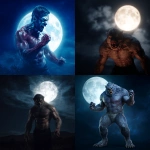Explore the Best AI Image Gallery

AI Images in Marketing: Redefining Engagement and Creativity
As technology continues to evolve, artificial intelligence (AI) has emerged as a transformative force in various sectors, particularly in marketing. One significant advancement is the development of AI-generated images, which has revolutionized how brands communicate, engage, and appeal to their audiences. In this post, we will delve into the multifaceted role of AI images in marketing, exploring their potential uses, ethical considerations, and future trends.
The Impact of AI on the Creative Industry
AI has profoundly influenced the creative industry by changing how art and design are conceived. With AI tools capable of generating visuals that range from photorealistic images to abstract designs, marketers can now push the boundaries of creativity without the restrictions that traditional methods impose. AI-generated images not only save time and resources but also foster an environment of experimentation.
Applications in Marketing
The applications of AI-generated images in marketing are numerous and can significantly enhance brand storytelling. Here are some of the prominent uses:
- Personalized Advertising: AI can analyze consumer behavior and preferences to create hyper-personalized images that resonate with target audiences. This tailored approach can lead to higher engagement rates, as consumers are more likely to respond positively to visuals that reflect their interests.
- Content Creation: Producing content at scale is a critical need in digital marketing. AI tools can quickly generate high-quality images for blogs, social media posts, and advertisements, allowing brands to maintain a consistent visual presence without overwhelming creative teams.
- Illustrative Design: Brands can collaborate with AI to create unique and eye-catching illustrations instead of relying on stock images or regular graphics. These distinctive designs can enhance brand visibility and leave a lasting impression on consumers.
- Augmented Reality: AI-generated images can be integrated into AR experiences, enhancing consumer interaction. Imagine scanning a product with a smartphone and seeing an interactive, AI-generated visualization that provides additional information or a virtual try-on feature.
Ethical Considerations
As with any technological advancement, the use of AI-generated images in marketing comes with ethical implications. Key concerns include:
- Copyright Issues: The ability of AI to generate artwork raises questions about ownership. Who owns the rights to an image created by an algorithm? The original creator, the developer of the AI, or the user who prompted its creation?
- Authenticity: Using AI-generated images may lead to a paradox where consumers begin to question the authenticity of the visuals they see in advertisements. Brands need to strike a balance between innovation and maintaining a trustworthy relationship with their audience.
- Bias in AI: AI systems are only as unbiased as the data they are trained on. If the training data contains inherent biases, the AI may produce images that perpetuate stereotypes, potentially harming marginalized communities.
Future Trends
As we look to the future, several trends concerning AI-generated images in marketing are becoming more prominent:
- Increased Collaboration: We will likely see more hybrid approaches where human creativity blends with AI assistance. Marketers might use AI to generate draft concepts and then refine them, ensuring the final product retains a human touch.
- Advanced Personalization: As AI tools evolve, they will become more adept at understanding consumer emotions, enabling marketers to create images that evoke specific feelings, further enhancing engagement.
- Sustainability in Marketing: AI can help reduce waste in marketing efforts by predicting which visuals will perform best, thus optimizing resources and minimizing unnecessary production of images that don't resonate with audiences.
- Accountability and Transparency: As ethical concerns grow, brands will need to adopt practices that ensure transparency in the use of AI-generated images. This might include disclosures in advertisements about the use of AI technology, helping build trust with consumers.
Conclusion
AI-generated images are reshaping the marketing landscape, offering unprecedented opportunities for creativity and engagement. However, as brands explore these new avenues, they must also navigate the ethical waters that accompany AI's capabilities. By balancing innovation with responsibility, marketers can harness the power of AI imagery to create compelling, authentic, and effective campaigns that resonate with their audiences, shaping the future of marketing as we know it.

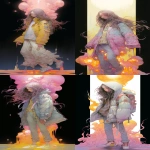



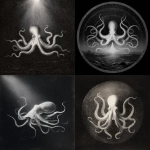


](https://images.ai-img.art/thumbnails/150/ddfcd3cfcd96dd8d48f26fc2a0406d5daa1e8ff5c17fd91de6502c7107ca08ac.webp)

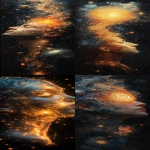



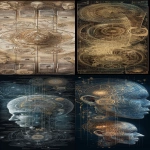
](https://images.ai-img.art/thumbnails/150/c567a1358478083ae41a0cfe6091474ff06e613a84b6c29ca3a26beb2bd76142.webp)

](https://images.ai-img.art/thumbnails/150/99160160c478b524ba92aa139b5b6aef0be4f3368720294c1dc3fe8fc4cbdd90.webp)

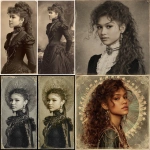



](https://images.ai-img.art/thumbnails/150/d912741b1ab16ff573f976b1d875060fed0db91bf03973bae8f91338eb0863a8.webp)

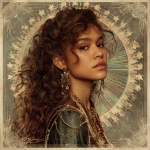



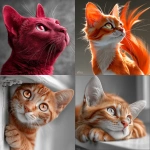
](https://images.ai-img.art/thumbnails/150/0349dd8cf310ed10eba1fc74a6f316b8982c8c2bda7e033d1c1e3dc87d849258.webp)


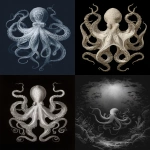




](https://images.ai-img.art/thumbnails/150/6ac2c201a41e2b8724571746d5719f3f25acc52d87a2077f62dcbae44495108e.webp)





